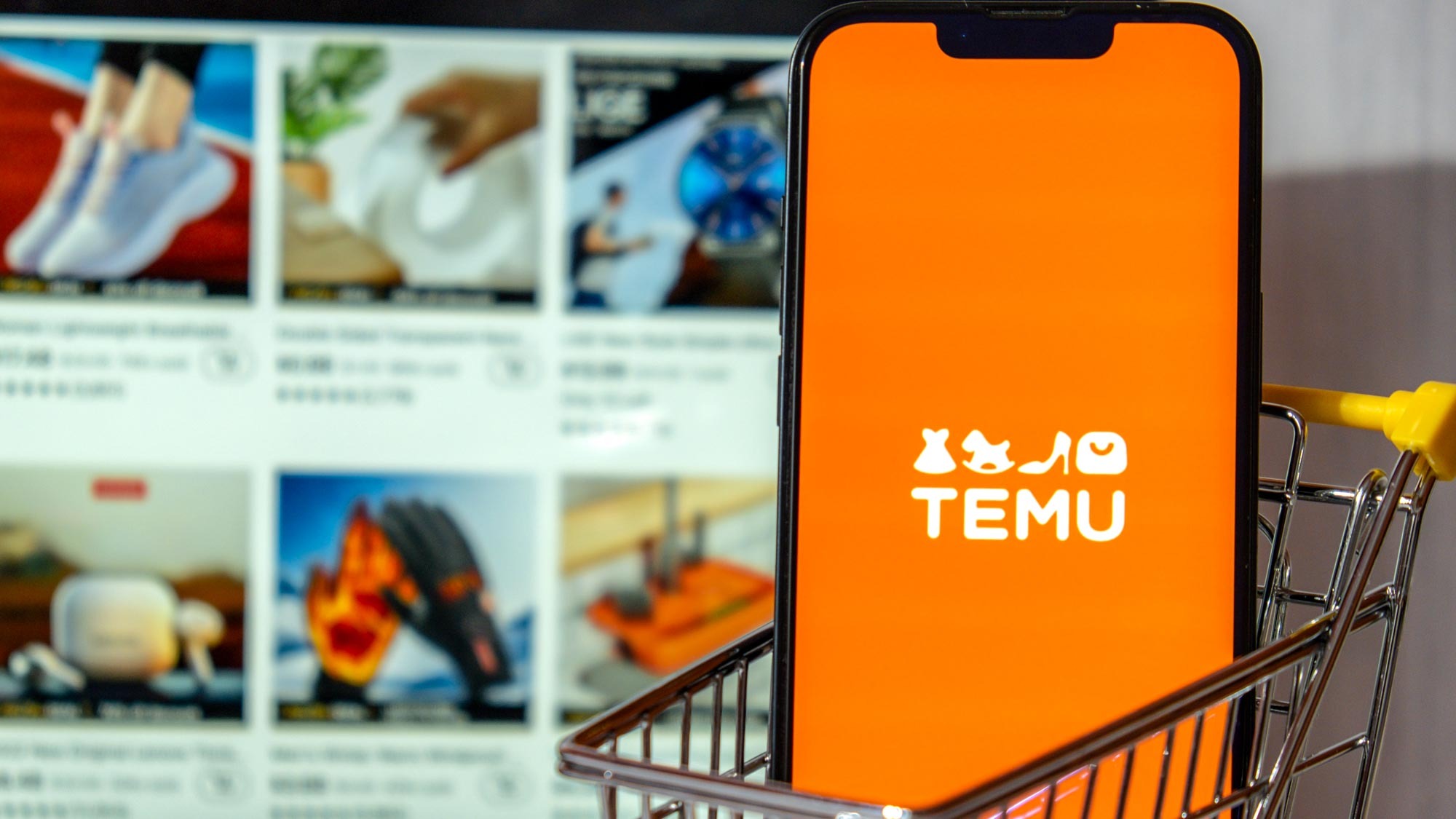
E-commerce giant Temu burst on to the web only a few years ago but has already become so ubiquitous that it appears in banner ads across many websites.
Lately, though, many have been wondering if the app is all it's cracked up to be as videos and reviews surface of poor quality products, and the news reports of congressional hearings on poor labor practices and possible malware issues.
Here's everything you need to know about Temu along with whether or not it's safe to shop on the company's app and website.
What is Temu?
Launched in September 2022, Temu is an online marketplace that looks like what would happen if Amazon and the Dollar Store had a baby: A vast array of products from apparel and baby clothes to electronics and home goods at almost questionably low prices.
Strongly gamified with spinning wheels to click on to earn bargains, and many distracting flashing signs advertising deals that are about to expire, Temu sells everything from look-alike Apple Watches for $10 to holiday iron-on decals for less than a dollar.
Temu is an online marketplace that looks like what would happen if Amazon and the Dollar Store had a baby
The company gained a lot of press earlier this year when it ran several ads during the 2024 Super Bowl encouraging viewers to “shop like a billionaire” – the second year in a row the company has run such a campaign.
However, the company’s overall reputation is sketchy as many online reviews and videos show subpar quality goods, items that are never delivered or designs that have been stolen from other shops. The company has also been questioned for its labor practices, as well as for possibly stealing data and inserting malware through its app.
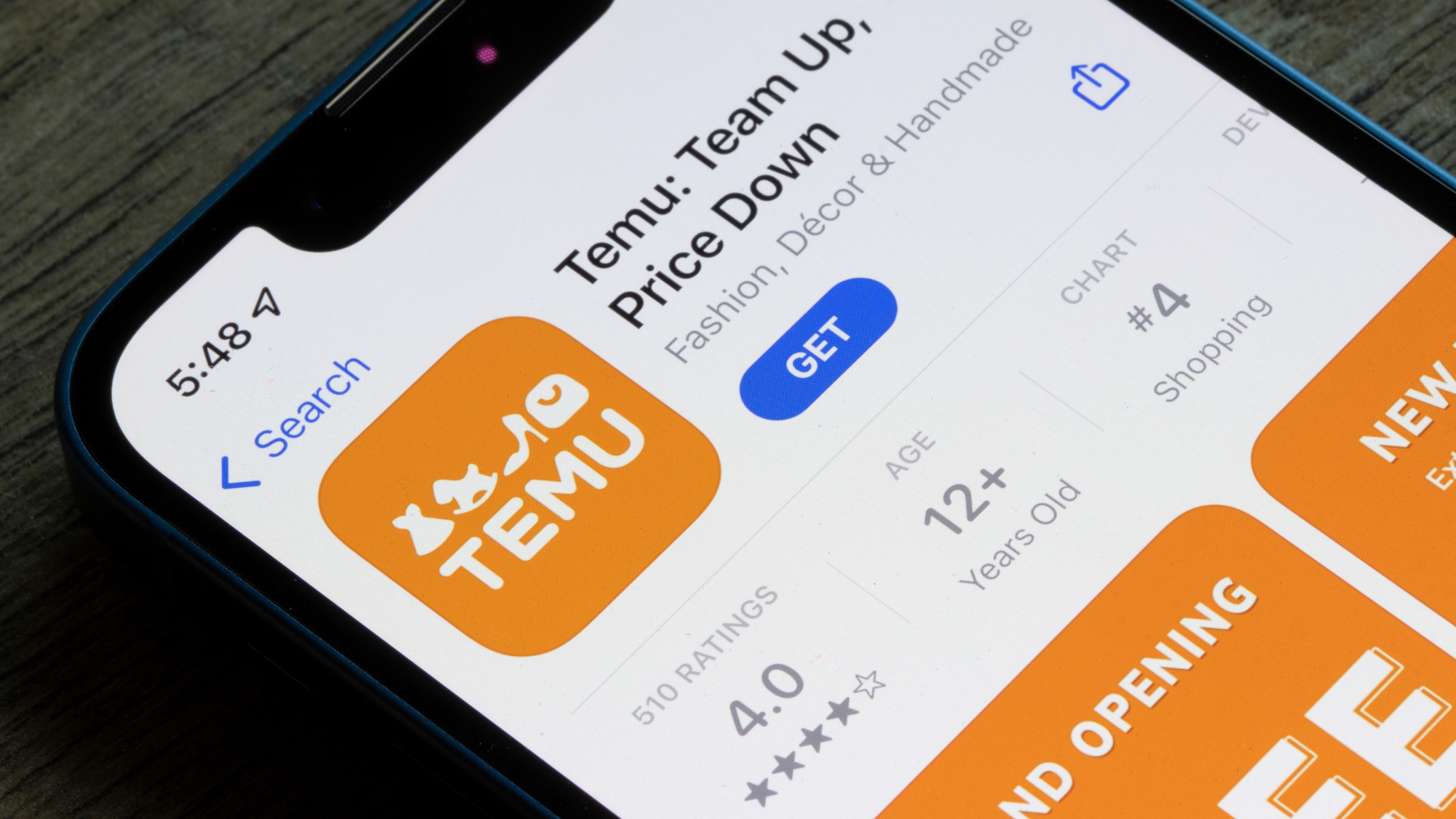
That doesn’t seem to have dissuaded customers though; the Android app for Temu currently shows over 500 million downloads while the iOS app for Temu is ranked No. 1 for free Shopping apps.
Who owns Temu?
Temu is headquartered in Boston. However, it's owned by PDD Holdings, a company that was originally located in Shanghai but relocated to Dublin in February 2023. PDD Holdings also owns Pinduoduo, a social commerce platform, which has a similarly problematic reputation.
Temu says that it provides its bottom dollar pricing by “tapping into PDD Holding’s extensive network of over 11 million suppliers” meaning that it cuts out the middleman and ships products directly to customers from these retailers.
As we’ve mentioned previously, though, you get what you pay for: Temu’s primary business model seems to be undercutting competitors like Amazon and Walmart, and while those retailers at least make attempts to curb off-brand lookalikes and dubious products (to varying degrees of success), Temu feels more like the Wild West by comparison. It is often grouped with e-commerce sites like Shein, Wish or AliExpress, which are known for having lower-quality items, long shipping times and shorter return windows.
What's the controversy about Temu?
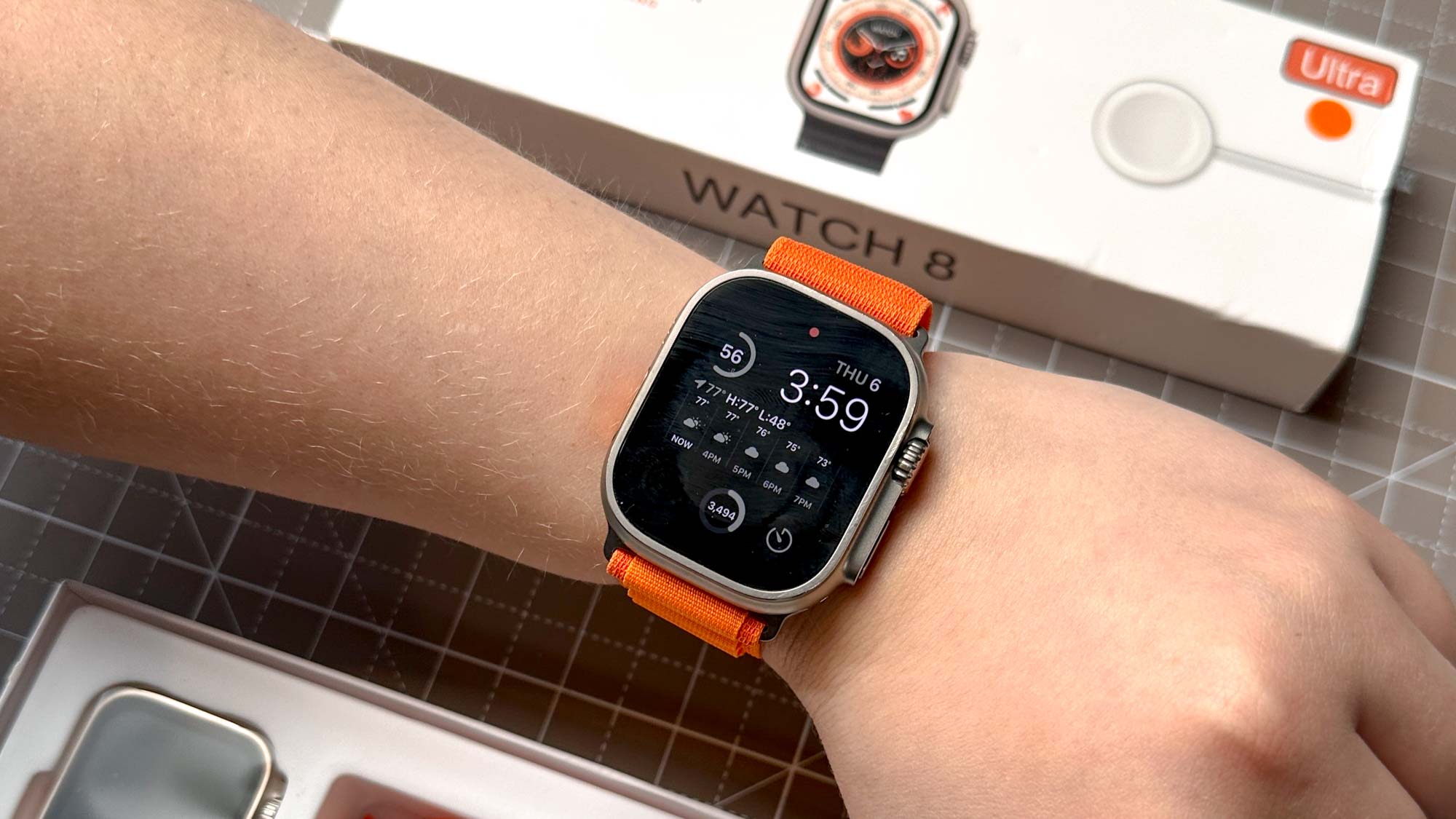
Aside from the issue of quality, Temu has had a fair share of other reputational controversies. While Temu’s Third Party Code of Conduct has boilerplate text that states that all Temu vendors must comply with local wage laws, and that their working conditions must be safe and non-abusive, Temu also lacks any policies or compliance programs to ensure that these standards are being followed or met.
Temu does not publish audits of its manufacturing facilities, which means there’s no way to ensure that there aren't any violations. Pinduoduo, the sister social commerce company, has made the U.S. Trade Representative’s Notorious Markets List six years in a row. This list means a company has reportedly engaged in or facilitated substantial copyright piracy or trademark counterfeiting – something that Temu has also been accused of by Etsy sellers and even sued over by fellow e-commerce giant Shein.
Additionally, Temu has been under congressional investigation for possible violations of U.S. import and tariff laws, for exploiting trade loopholes to avoid paying tariffs or to avoid reviews (or both), according to findings from the House Select Committee on the Chinese Communist Party.
Temu and the BBB
Temu is not accredited by the BBB and currently has a B- rating. There are roughly 3,200 customer complaints about Temu on the Better Business Bureau website, many regarding shipping issues. Temu has a 2.43 star rating out of 5 stars on the BBB website, with a little over 1,700 reviews. However, Temu has responded to many of the one-star reviews regarding customer service and deliveries.
What's ordering from Temu like?
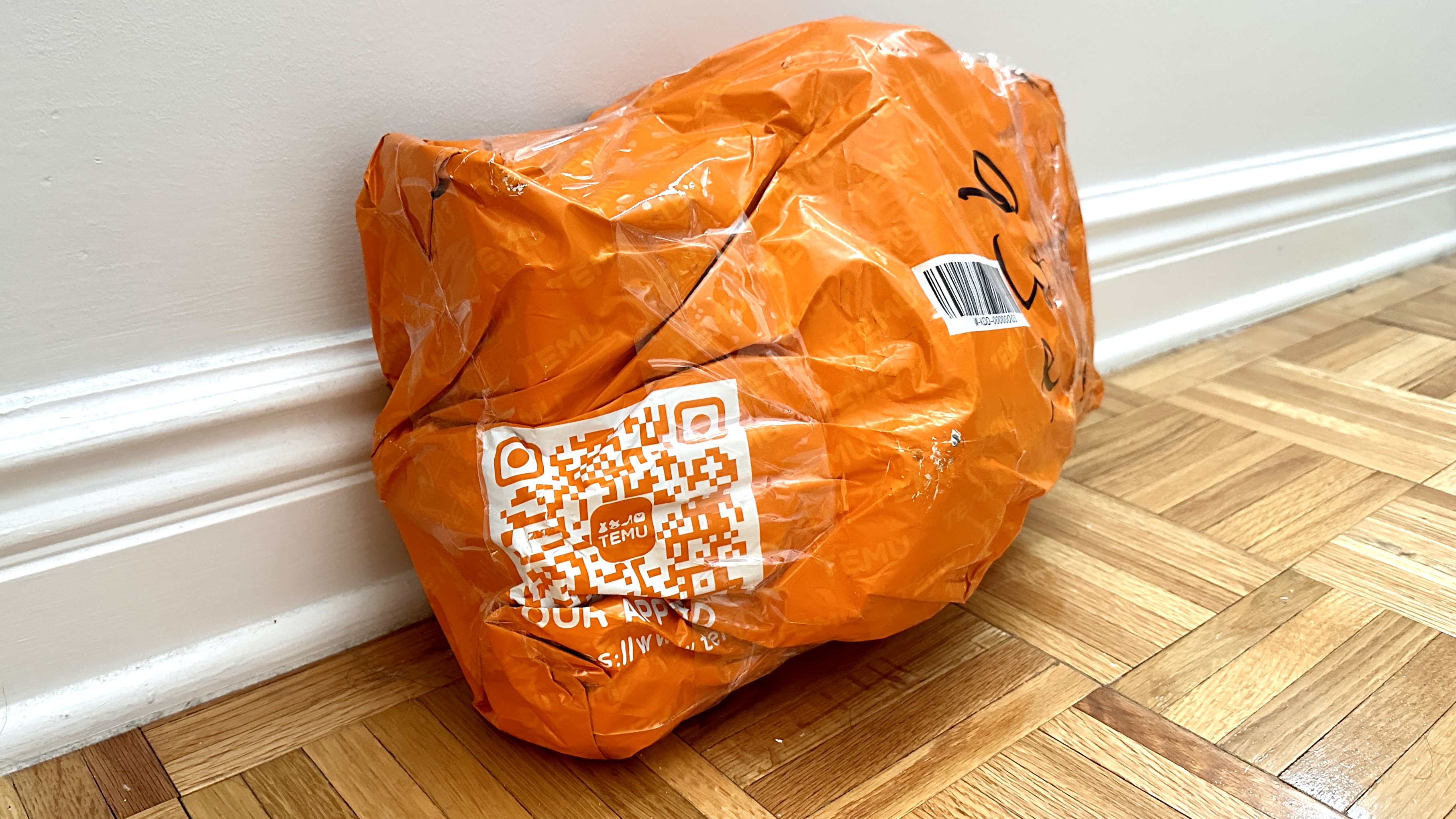
Tom’s Guide managing editor Kate Kozuch ordered both electronics and home goods from Temu in the name of journalistic experimentation and found that she had better luck with the home goods: The Apple-knock off products were a largely negative experience, with some things arriving broken, and most being of such poor quality that they weren’t worth the purchase. She said she would have been better off with any of the cheap wireless headphones we’ve reviewed over the AirPod Max knock-offs.
The home goods were mostly a better lot, though a glass mug arrived broken, and some boxes came dented. At the time, she said she didn’t think she would order from them again despite the cheap prices. Kate felt like she ordered things she didn’t need – impulse buys – and she would have rather spent the money on something more meaningful like a nice meal, or a good game.
When I checked back in with Kate for this story, she said she had ordered a few odds and ends from Temu since her coverage – some decorations for a holiday party that had worked out well, and scrapbooking – but she would caution people to stay far away from the electronics, and warns that the site is aggressive in sending nonstop texts and emails to continue shopping when you put items in your cart.
Other things to consider: customers must have at least $10 in their cart to complete an order. If your items arrive late, Temu will offer a $5 credit (for standard shipping), or $13 for late packages purchased with express shipping.
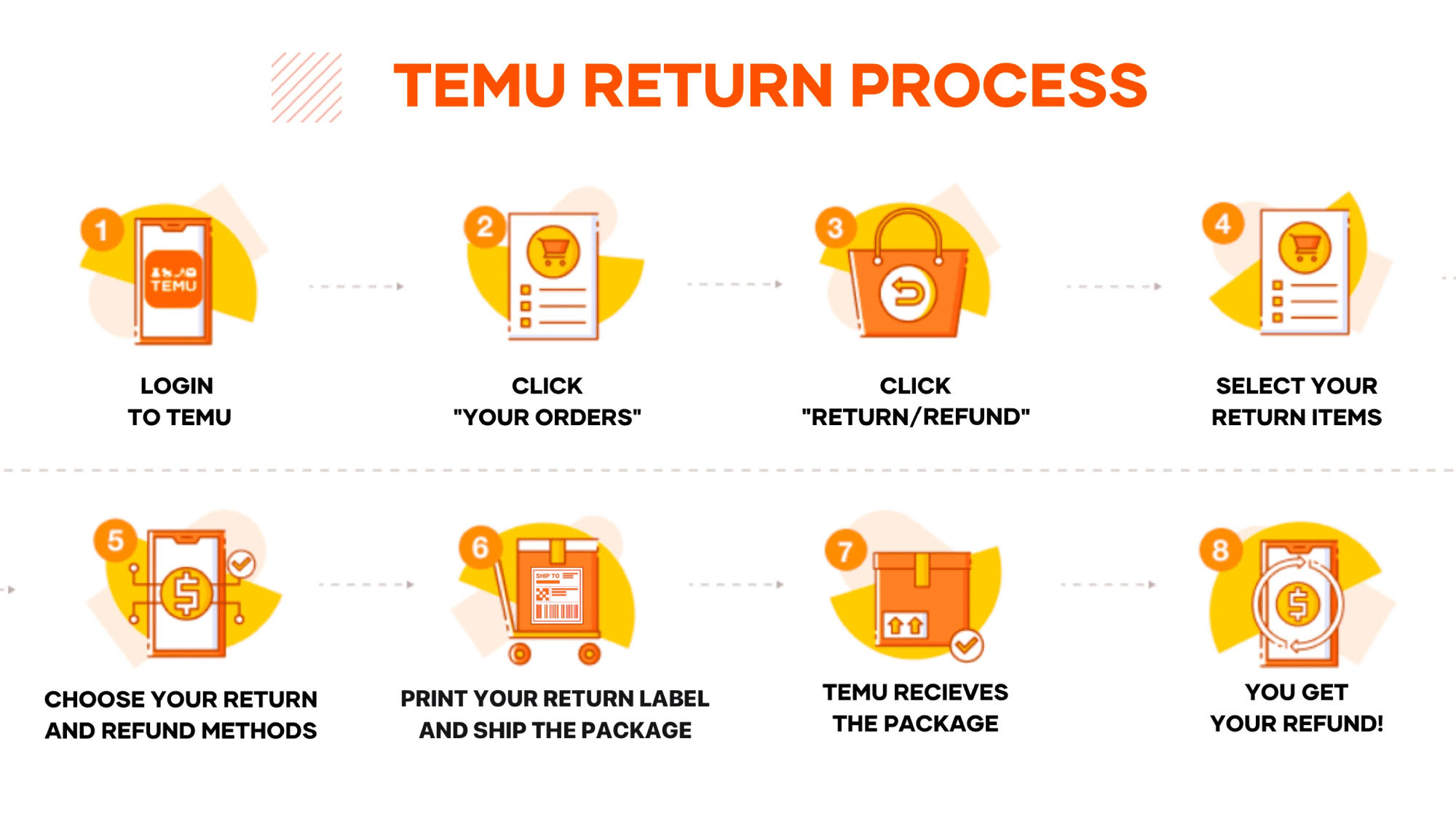
Additionally, if your items arrive damaged, don’t arrive at all or don’t resemble their online listing, Temu’s Purchase Protection Program guarantees a full refund – if you return your items within 90 days of purchase (not delivery). But how many people are going to go through the hassle of returning an item and paying a $7.99 shipping fee for items they paid less than $5 for?
Is it safe to order from Temu?

Though it is not uncommon for e-commerce apps to collect personal data from customers – and sometimes sell it – consumers have become increasingly wary about how their information is collected, stored, shared and profited from. This is particularly true when the apps are owned by companies outside of the U.S.
Last year, Google suspended PDD Holding’s Pinduoduo for malware. And though a CNBC article says Temu poses less of a threat and the Pinduoduo risks targeted Chinese users, it still raises concerns about what kind of data the company is collecting and distributing about its customers.
ZDNet points out that there is not a single law to protect U.S. citizens user data, the collection of that data is unregulated in most states. So while Temu may be sharing your personal information with marketing providers in order to generate revenue, Amazon is also probably collecting your voice recordings when you speak to Alexa, and Walmart may have your biometric data as well.
The reality is that if you sign up for these company’s services, you are agreeing to their policies, so they’re not ‘stealing’ your data. You’re giving it to them. If you don’t want to do that, don’t give them your business.
So… should I order from Temu?

In the end, whether or not you opt to order from Temu is up to you – you certainly can and millions do. But you shouldn’t do so without being aware of how to best protect yourself.
First, know that items with a blue check mark usually ensure a better quality product – particularly when it comes to electronics – and check the reviews for a product. Any product with entirely positive reviews, no reviews or anything without review photos is something to be wary of.
Additionally, use best practices for ordering. Skip the app entirely and use the web browser. Use a throw away email account and use a VPN. Pay with a protected pay method like a Visa gift card, Apple Pay, Google Pay Samsung Pay or Pay Pal.
Lastly, understand that you’re getting what you pay for and the item is likely going to be of a lesser quality. And the money you save on your blanket, kitchen utensils or keyboard may come at a higher price to the environment or to your own personal online security.







